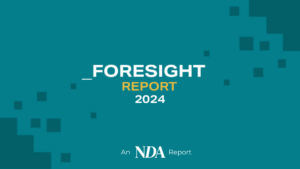By Jessica Hooper, Team Lead, Customer Success, at Iterable.
Having spent much of the last year at home — and online — the post-pandemic consumer is not only digitally adept, but demanding of the brands they do business with, and discerning. Moreover, they are willing to share their sentiment online.
Luckily for brands, a sure-fire way to meet customer demands is to take a stand politically, ethically and socially. In fact, new research into 1,500 U.K. and U.S. consumers by Iterable, revealed that an overwhelming majority (88%) of consumers are more receptive to a brand’s messaging if they know its beliefs and values. When asked why, 62% of respondents credited the greater level of trust they feel towards the brand, with others pointing to an improved sense of the brand’s authentic identity (44%) and its purpose as a business.
The discerning consumer, while more receptive to value-sharing, is also sceptical of the authenticity of a brand’s impact-focused messaging. Brands who don’t live up to their meaningful marketing messagings will be called out for “woke washing”, and face repercussions like poor reviews and churned customers, resulting in lost revenue.
As Andy Morley, Head of Marketing at Uber ANZ shared, “Ultimately the biggest legacy of COVID-19 will be greater authenticity from brands”. It’s more important for brands to nail their authentic messaging now than ever before.
Getting authenticity right
Socio-political issues are an increasingly important guide for customer relations with brands. In fact, in the past year, over half of U.K. and U.S. consumers (58%) have received a marketing message that made a statement about a social or political issue.
Nike is an example of a brand getting it right. As one of the first big brands to respond to the murder of George Floyd in May 2020, its social media campaign, that cleverly reimagined their iconic ‘Just do it’ slogan to encourage people to reflect and take action on racial inequality, inspired a number of other brand responses and was celebrated for its authenticity.
The value of brand activism is hard to ignore. Iterable’s research found that three-quarters of consumers (71%) said receiving these messages encouraged positive associations with brands. These results make clear that one-size-fits all and generalised marketing campaigns are antiquated and ineffective. Customers are verbalising their desire to do business with brands that lead their communications with care.
Personalisation is the key to success
Customers value a brand they can form an emotional connection with – and personalisation is a great way to catalyse this bond, ensuring that each interaction is tailored to the individual customer’s needs.
As data volumes increase, AI is becoming an ever-valuable tool to analyse this data, supporting brands to make the most of it and create personalised experiences for each and every customer. Of course, it goes without saying that data privacy is paramount when it
comes to brand trust. Ensuring that there is sufficient regulation in place and that your company is following those regulations will help to reassure and delight your customers.
Last year, we launched Brand Affinity™, an intelligent personalisation solution that empowers marketers to tune into their customer’s feelings and personalise the customer experience at every stage of the customer life cycle.
For dgtl fundraising, an agency for nonprofits that helps social good organisations build and execute digital strategies to fundraise and campaign, emotional connections are more important than ever. There is a direct correlation between engagement and propensity to donate, and personalisation is the bridge between the two.
By leveraging Brand Affinity, dgtl fundraising can now intelligently identify and segment potential donors based on cross-channel engagement signals. Each donor (or potential donor) is assigned an affinity label indicating their overall sentiment (loyal, positive, neutral, or negative), which can then be used for segmenting new audiences, tailoring customer journeys, or personalizing dynamic content in templates using conditional logic.
Using Brand Affinity, dgtl fundraising was able to nearly double conversation rates for their positive cohort – seeing 0.11% conversation with their previous targeting strategy, to 0.2% with Brand Affinity.
Authenticity and the future
The message is quite clear. Consumers are demanding authentic experiences. Over the next decade and beyond, brands will need an effective strategy for customer data to continue to deliver the bespoke, hyper-personalised experience customers have come to expect.
My advice for brands? Stand for something and lead with humanity in order to connect most effectively with today’s consumers. Authentic communication will ensure that you build genuine, long-term connections with your customers.









